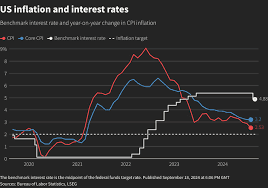Blog.
Money Matters
Darren Tsai

Money plays a significant role in shaping individual lives and society as a whole. It serves as a means of exchange, enabling people to trade goods and services, access necessities like food, housing, and healthcare, and pursue opportunities for education and personal growth. For many, financial stability is a key factor in achieving a sense of security and well-being. Without sufficient money, individuals may struggle to meet basic needs, leading to stress, reduced quality of life, and limited prospects for upward mobility. In this way, money is not just a tool but a foundation upon which personal aspirations and societal advancement are built.
On a broader scale, money influences power dynamics and social structures. It determines who has access to opportunities and resources, often widening the gap between the wealthy and the poor. Societies that prioritize wealth accumulation can exacerbate inequalities, creating environments where success and influence are tied to financial status. Conversely, money can also be a force for positive change, driving economic growth and funding essential services like infrastructure and education. In this context, managing money wisely, whether on an individual or societal level, becomes crucial to fostering equity and ensuring that wealth serves as a tool for collective progress.

FINANCE - MONEY MATTERS
The Essential Guide to Financial Literacy: An Interview with Professor Larry Harris
Whether you’re a student or a seasoned professional, understanding money management can shape your path toward financial freedom.

ECONOMICS - MONEY MATTERS
Inflation in 2024: An Expert’s Take on Its Impact on Consumer Behavior
The drivers behind inflation in 2024 are a mix of persistent supply chain disruptions and a tight labor market that has driven up wages.

ECONOMICS - MONEY MATTERS
Is College Worth the Investment? Navigating Career Choices in Today’s Job Market
The traditional idea of going to college to secure a stable career is being questioned more than ever before.

ECONOMICS - MONEY MATTERS
Understanding Federal Rate Hikes: What They Mean and How They Impact You
The Federal Reserve, often referred to as "the Fed," plays a critical role in shaping the U.S. economy.

ECONOMICS - MONEY MATTERS
Budgeting Tips: Expert Advice from Professor Jim Johannes, Deputy Department Chair of UW-Madison
Budgeting is a critical skill for managing personal finances, yet many people struggle to implement it effectively.